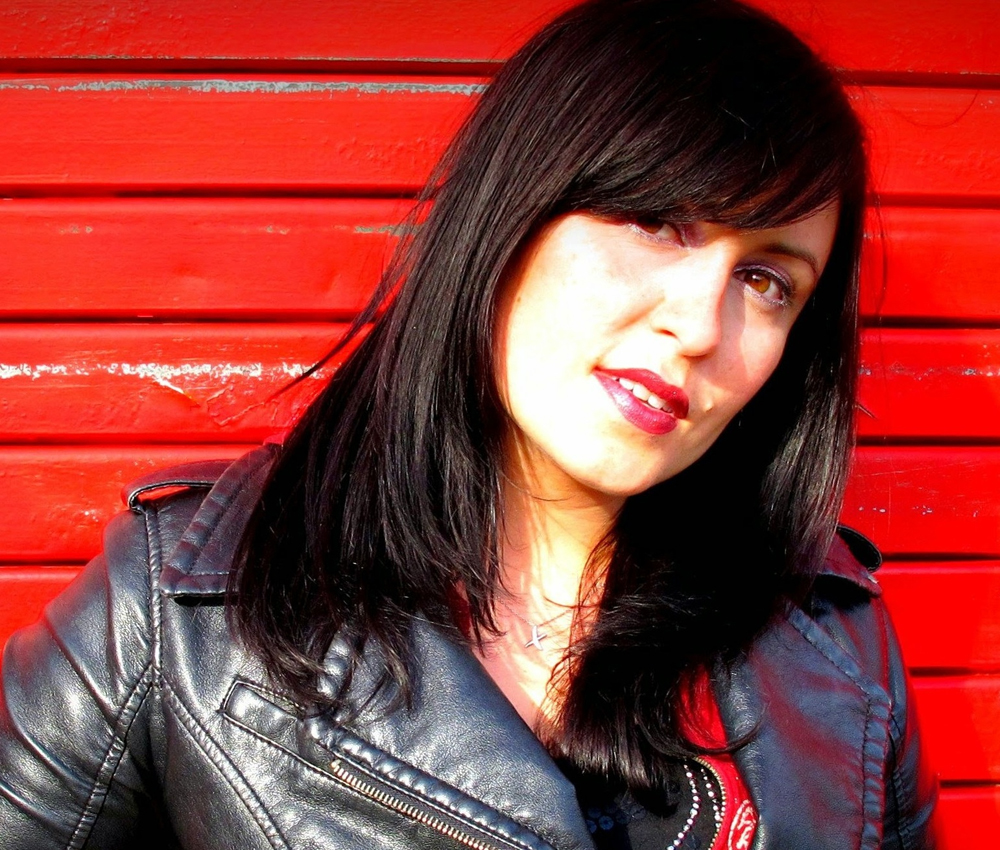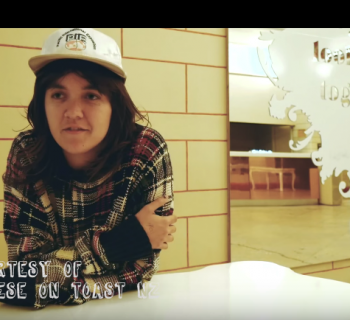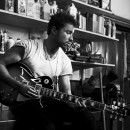Australia’s Courtney Barnett, 28, has carved a unique niche for herself with her deadpan vocal delivery and infectious beats.
In 2013, Barnett earned international acclaim with the release of her sophomore, self-released EP, How to Carve a Carrot Into a Rose. Rollicking performances at CMJ followed, as well as a bundling of her early recordings, redubbed The Double EP: A Sea of Split Peas.
The artist’s full-length debut, Sometimes I Sit and Think and Sometimes I Just Sit, released in March of last year, was nominated for eight separate ARIA Awards, taking home four. More recently, she was nominated for Best New Artist at this year’s Grammys in a field that included James Bay, Sam Hunt, Tori Kelly and (the ultimate winner) Meghan Trainor.
What’s most intriguing, besides Barnett’s wry, ultra-clever musical style, is the fact she’s reached such heights sans major label support. Even further, she’s lent her music-making pals a hand with her homegrown label, Milk! Records, which offers listeners the opportunity to support those artists directly––no middleman required.
Music Connection recently jumped at the opportunity to probe Barnett for insight into how her writing style developed, the origins of her visually arresting videos and what it takes to reach higher ground as a purely independent artist.
Music Connection: What do you make of all the nominations and awards you’ve received lately? Is it more exciting—or perplexing?
Courtney Barnett: It’s a funny thing, because it’s never happened to me before. It’s just a nice thing to be recognized. I think most people don’t write songs to win awards. I know I don’t. It’s kind of just a nice little aside. But it’s really nice to get that recognition.
MC: Your songs are simultaneously clever and laid-back. Is that a style you consciously came up with? Was there a moment you can identify when your particular artistic voice came into being with a song or performance?
Barnett: I’m not sure. When I started writing songs and was a teenager, I was so earnest and serious. I just wanted so badly for people to hear them. I wanted to write the perfect song every time. And once I let go of all those ideas of what I had to do and what it all meant and what people thought, that’s when I started writing good songs—when I stopped considering it so much and stressing out about all the outside possibilities. I don’t know. That could be something.
MC: What about influences? Are there other artists you consider a direct influence on your style or are those artists incidental to your vision? And speaking of influences, what about outside influences? We understand you’re a fan of writers like Roald Dahl. Do those sorts of influences play a part in your songwriting?
Barnett: I don’t have a songwriting God. I kind of come from all the stuff I like, which is a lot. I even find stuff I don’t like inspiring, which is a weird thing to say. I find inspiration in all different places. I just kind of put it all together and then it helps me figure out other ideas or other kinds of aspects of what I’m doing. I kind of just find ideas everywhere.
MC: Some of your songs incorporate elements from your personal life. Do those sorts of details help you connect with your songs, especially when performing them?
Barnett: I don’t need any help to connect with my songs. Writing them is the connection there. I write about what I know and what I experience most of the time. Not all the time, but most of the time. And the writing process is me kind of figuring out what’s going on or helping me get through whatever the situation is. So once it’s finished, recorded and played live, it takes on a different meaning. Other people hear it and they interpret it in their own way.
MC: Can you tell us about the sort of gear you use and how it affects your sound? And what about being a lefty—does playing left-handed affect your musical style?
Barnett: No, the only thing with being left-handed is I need to have my own guitar everywhere, because you can’t just break a guitar and borrow someone else’s, which is annoying sometimes. I’m pretty basic. I’ve only got a couple pedals, like some distortion and chorus and delay. All my songs so far are just like standard tuning, so there’s nothing crazy going on there. I mostly play between a Jag[uar] and a Telly [Telecaster]. The Telly’s a cleaner sound, I guess, than the Jag. I only got the Jag this year, so it’s been really great playing with that. It’s like a whole different sound.
MC: It’s interesting that you’re not on a major label, yet you’re emerging as an international star. Have you ever considered signing with a major? And how did you generate international interest without backing from a major?
Barnett: I started my own label in Australia and then slowly people overseas started hearing about it. We signed with a label in London. I’ve never really had an interest in major labels. My interest is in writing songs and recording and playing them. I don’t feel like I need the whole world to love me and what I do and buy my record just because I’ve been told to. I’d prefer just a handful of people to discover it and have some sort of emotional connection to it. That means more to me. So I guess that’s kind of…I don’t know. Yeah. I quite like the setup I’ve got going right now. It’s good.












